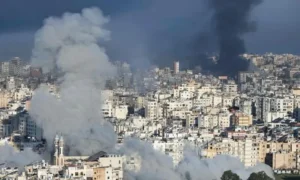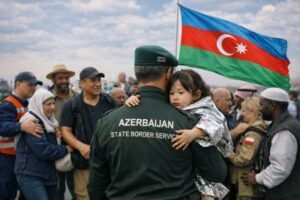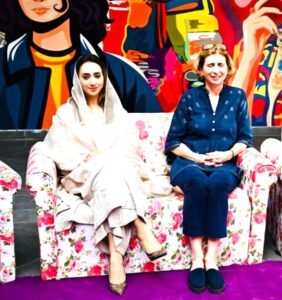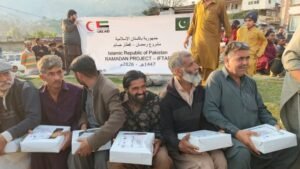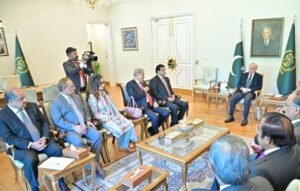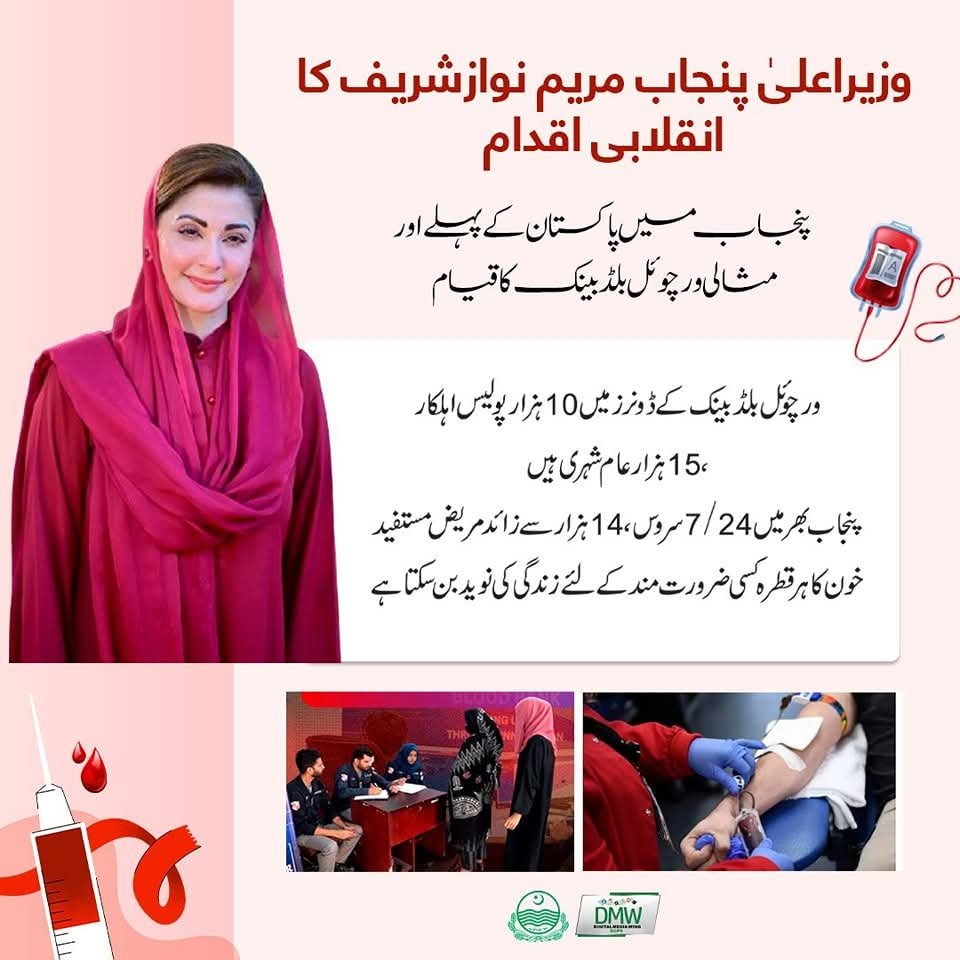
Lahore : On the direction of Chief Minister Punjab Maryam Nawaz Sharif, Pakistan’s first and exemplary Virtual Blood Bank Centre has been established in Punjab. By calling Emergency Helpline 15, the patient can immediately get the required blood from the Virtual Blood Bank Center. After calling Emergency Helpline 15, pressing the button 4 will immediately connect the call to the Virtual Blood Bank Centre. The Safe City Officer deputed at the Virtual Blood Bank Centre obtains required information about the patient’s location and blood group. The donors registered in the patient’s respective area are immediately contacted by the patient’s family through a conference call.
In the blood donation model, police officers in their respective police stations are also involved in the donation process. The procedure for registering blood donors in the Virtual Blood Bank of Punjab Safe City has been simplified. Blood donors can register on Helpline 15, Safe City official website or at the Police Khidmat countres established in government hospitals across Punjab. 2500 people contact the virtual blood bank daily to get blood. Arrangements will be made to meet the urgent need of 250 patients daily.
The number of blood donors registered in the virtual blood bank is more than 25,000. The donors of the virtual blood bank include 10,000 police personnel and 15,000 citizens. 24/7 service is being provided across Punjab and more than 14,000 patients have benefited from this facility. The Chief Minister has appealed to the citizens, especially the youth, to join the noble cause of blood donation. She emphasized that every drop of blood is precious in times of emergency and dire need. Every single drop of blood can be a ray of hope for saving someone’s life in dire need. The Punjab province has entered into a new era of digitization, the quality of services will be elevated to new heights.



